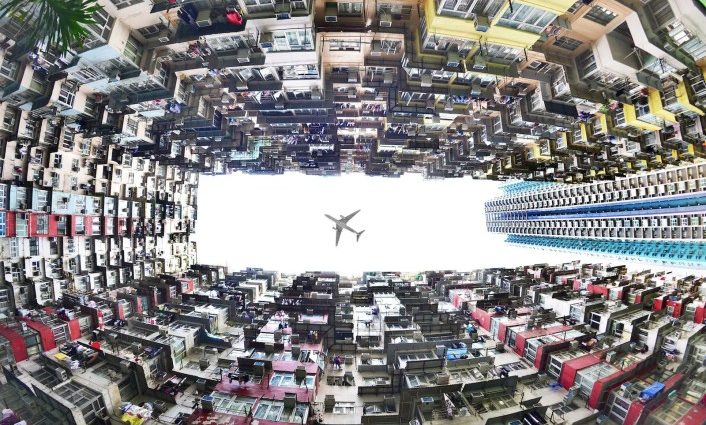Chinese telecom giant Huawei Technologies is fast reforming its electric vehicle (EV) unit in a potential bid to replicate the business model of Germany’s Bosch, which supplies core auto parts but does not make automobiles outright.
The Shenzhen-based company, which has faced several rounds of sanctions imposed by the United States since 2019, signed an investment cooperation memorandum with Changan Automobile, a Chongqing-based automaker, to establish a joint venture to develop, produce and sell smart-driving systems and related components for EVs.
Changan and associated parties will acquire a stake not greater than 40% in the venture while its initial investment size will be determined at a later date.
Media reports suggested the joint venture may be worth about 250 billion yuan (US$35.2 billion) as Changan will reportedly take a 15% stake for 37.5 billion yuan. The state-owned Assets Supervision and Administration Commission (SASAC) in Chongqing, Changan’s parent, will also reportedly be a strategic investor.
Huawei and Changan said in a statement that the new unit will serve as an open platform for the automotive industry and will extend equity participation invitations to existing strategic partner automakers and other investors.
Seres, a Chongqing-based EV maker jointly established by Dongfeng Automobile and Jinkang Automobile, said it has received an invitation from Huawei to invest in the joint venture.
Richard Yu, chief executive of Huawei Consumer Business Group, said on November 28 that Huawei has also invited Chery Automobile, JAC Motors and BAIC Motor to invest in the new joint venture. Yu said Huawei will also send an invitation to FAW Group.
However, JAC Motors said on November 28 that it has not yet received Huawei ‘s invitation. It said it will continue its partnership with Huawei, which was first proposed in 2019 but has not yet made a lot of progress, according to reports.
Not everybody is sanguine about the joint venture’s prospects. “If Huawei insists on making its own cars, more and more automakers will be wary of it, and they will eventually choose to walk away from it,” Zhao Jinjie, a Chinese business columnist, opined in a recent article.
He notes that Guangzhou Automobile changed its AH9 project with Huawei from joint to independent development in March this year. Landian, a subsidiary of Seres, also launched its E5 vehicle without using Huawei’s e-driving system and HarmonyOS in March.
“Due to different problems, Huawei’s plan to become ‘China’s Bosch’ was not successful in the past,” Zhao wrote. “But with the spin-off of its auto Business Unit (BU) and new investment from automakers, Huawei has found a new way to continue its ‘Bosch’ dream.”
‘Never make cars’
Back in early 2019, Huawei’s founder Ren Zhengfei told the media that Huawei would “never make cars” but rather instead help automakers develop EVs. He said at the time that Huawei wants to become “China’s Bosch.”
Bosch was founded by German industrialist Robert Bosch (1861-1942) in 1886. It initially supplied magneto ignition devices used in automobiles and by the early 1900s had expanded into other auto parts. Bosch started making home appliances in the late 1920s.
In recent years, Huawei’s management has debated whether it should make its own cars and become another BYD, China’s current EV market leader. But Ren reportedly kept rejecting the idea.
Currently, there are three business models for Huawei’s EV business.
In the Harmony lntelligent Mobility Alliance (HIMA was previously known as Smart Selection) business model, Huawei collaborates deeply from product design to sales with its partners. Ongoing projects include Seres’ M5, M7 and M9 series and Chery Automboile’s S7 series.
In the Huawei Inside (HI) business model, Huawei sells solution packages including smart cockpit, e-driving systems and related parts to automakers. Ongoing projects under the model include BAIC Motor’s Arcfox series and Changan’s Avatr series.
In the Tier-One Automotive Supply business model, Huawei only sells independent components, similar to Bosch’s model.
Chinese commentators said if the reform is successful then it will allow Huawei to form an alliance of EV makers to develop an industry standard and build an EV ecosystem.
But some are skeptical whether Seres, Chery and other automakers will really invest in the Huawei-Changan joint venture, in which Huawei would maintain a controlling stake.
Yuan Bo, a Chinese information technology expert, told the media that some automakers do not want to limit themselves to only sourcing Huawei’s products while some others are still worried that Huawei will change its plan and one day make its own competing EVs.
Read: Huawei, Seres challenge Tesla in hard-fought EV battles
Follow Jeff Pao on Twitter at @jeffpao3

